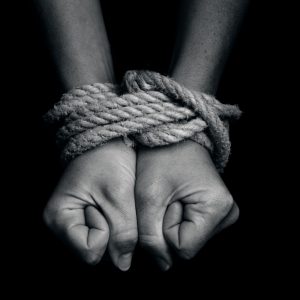Human Trafficking and Exploitation
Human trafficking and exploitation represent severe violation of human rights that affect millions of individuals worldwide. These crimes involve the exploitation of vulnerable people for labor or commercial sex, often through coercion, deception, or manipulation. Awareness and understanding are critical for prevention, intervention, and support.
What is Human Trafficking?
Human trafficking encompasses a range of exploitative practices, including:
- Sex Trafficking: This involves forcing or coercing individuals into commercial sex acts for profit. Victims may be manipulated or threatened and often face severe physical and psychological abuse.
- Labor Trafficking: Individuals are compelled to work under exploitative conditions in various industries, such as agriculture, construction, and domestic work.
- Child Trafficking: Recruitment and exploitation of minors for labor, sexual exploitation, or use as child soldiers.
What is Exploitation?
Exploitation occurs when individuals are subjected to unfair treatment, forced labor, or coercive circumstances. This can include:
- Forced Labor: Individuals working against their will, often under threats of violence or other forms of coercion.
- Debt Bondage: Victims are forced to work to repay a debt, often under terms that are impossible to fulfill.
- Sexual Exploitation: Victims are coerced into engaging in sexual activities for profit, often in degrading or harmful situations.
Signs of Human Trafficking & Exploitation
Recognizing the signs can help identify potential victims:
- Isolation: Victims may appear withdrawn or fearful and may be isolated from friends and family.
- Inconsistent Stories: Victims may give unclear or inconsistent accounts of their situation or lack awareness of their surroundings.
- Fearful or Submissive Behavior: Signs of fear, anxiety, or a submissive demeanor, particularly around certain individuals.
- Lack of Personal Belongings: Victims may not have access to identification or personal belongings.
The Impact of Human Trafficking & Exploitation
The consequences for victims are profound:
- Physical & Psychological Trauma: Victims often endure severe physical harm and mental health issues, such as PTSD, anxiety, and depression.
- Social & Economic Consequences: Trafficking can disrupt education, job opportunities, and social networks, perpetuating cycles of poverty.
- Long-Term Challenges: Survivors may face difficulties reintegrating into society, including stigma and limited access to support services.
Vulnerable Populations
While trafficking can happen to anyone, traffickers often target vulnerable groups, including:
- Youth aged 12-14
- Individuals struggling with addiction
- The homeless
- Victims of abuse or neglect
- Runaways or those with high truancy rates
- Individuals in the LGBTQ+ community
- People without documentation
Prevention & Advocacy
Addressing human trafficking requires a collaborative effort:
- Education & Awareness: Raising awareness about the signs of trafficking among communities, law enforcement, and service providers.
- Policy Support: Advocating for laws and policies that protect victims and hold traffickers accountable.
- Community Involvement: Encouraging community action through volunteer programs and awareness campaigns.
Human trafficking and exploitation are critical issues that require urgent attention and action. By understanding the signs, promoting awareness, and supporting victims, we can collectively work towards eradicating these human rights violations. If you or someone you know is affected by human trafficking or exploitation, seek help immediately. Our Crisis line is available 24/7.
All Services are Free & Confidential
- Local Number: 608-791-2600
- Toll Free Number: 1-888-231-0066
- Text Only Number: 608-667-9944
For a list of other resources, click HERE.
National Human Trafficking Hotline: 888-373-7888


